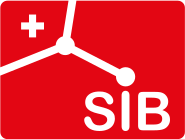Topic 4
Section outline
-
Wednesday 25 June
Human genomics variation, drug design targeting the right patient
8:30 – 12:00 Manolis Dermitzakis (SIB Swiss Institute of Bioinformatics, University of Geneva, CH) - From Population and Personalized Genomics to Personalized Medicine
Abstract: Molecular phenotypes are important phenotypes that inform about genetic and environmental effects on cellular state. The elucidation of the genetics of gene expression and other cellular phenotypes are highly informative of the impact of genetic variants in the cell and the subsequent consequences in the organism. In this talk I will discuss recent advances in key areas of the analysis of the genomics of gene expression and cellular phenotypes in human populations and multiple tissues and how this assists in the interpretation of regulatory networks and human disease variants. I will also discuss how the recent advances in next generation sequencing and functional genomics are informing us about the impact of regulatory variation in cancer. Finally, I will present some perspectives on how these developments are bringing us closer to the promise of personalized medicine.
12:00 – 17:30 Lunch. Track in the mountains or Speed presentations and poster session (weather dependent)
18:30 – 20:00 Dinner
20:00 – 23:00 Olivier Michielin (SIB Swiss Institute of Bioinformatics, University of Lausanne / CHUV, CH) - Targeting stage IV melanomas
Abstract: Progress in genomics with, in particular, next generation sequencing is revolutionizing oncology. The impact of these techniques is seen on the one hand on the identification of germline mutations that predispose to a given type of cancer, allowing for a personalized care of patients or healthy carriers and, on the other hand, on the characterization of all acquired somatic mutation of the tumor cell, opening the door to personalized treatment targeting the driver oncogenes. In both cases, next generation sequencing techniques allow a global approach whereby the integrality of the genome mutations is analyzed and correlated with the clinical data. The benefits on the quality of care delivered to our patients are extremely impressive. During this workshop we will illustrate how these approaches have changed the way we are now treating stage IV melanoma. Insights on the use of genetics and genomics data in clinical practice will be given. We will also discuss how genetic variants can be targeted with highly specific inhibitors.
Software installation:
VMD: http://www.ks.uiuc.edu/Development/Download/download.cgi?PackageName=VMD
UCSF Chimera: http://www.cgl.ucsf.edu/chimera/download.html
Reading material:
